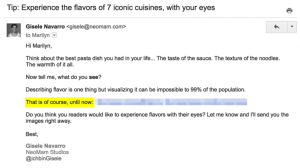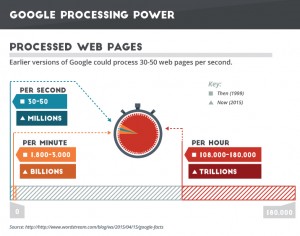Branded is a weekly column devoted to the intersection of marketing, business, design, and culture.
At first, it looked like Marie Kondo had deeply undermined one of the most successful personal-brand stories of the past decade. According to a Washington Post article, the author, Netflix star, business owner, and all-around maven of life-affirming tidiness conceded, in an online discussion with members of the media to promote her latest book, that since giving birth to her third child, she had “kind of given up” on keeping her own home tidy.
To many, this sounded almost catastrophically off-brand. It was like Patagonia announcing it had “kind of given up” on the environment, or Nike declaring that competition isn’t everything, and sometimes it’s better to just not do it.
The comment attracted a flurry of media attention, and online debate. This, after all, is the “queen of decluttering,” the same person whose breakthrough mega-seller, The Life-Changing Magic of Tidying Up, described a joy-filled lifestyle and promised: “It’s easy, once you know how to put your home in order.”
But while there was certainly some maybe-it’s-not-so-easy-after-all social-media snarking, that was promptly overwhelmed by messages of support from Kondo fans and loyalists. In fact, the Kondo faithful made the critics look like petty boors. Swiftly, the narrative turned from Kondo seeming like a hypocrite to Kondo seeming more relatable—an even more appealing version of the same embodiment of simple and life-affirming values as ever.
In some sense, you could say Kondo started her own backlash—and came out ahead for doing so.
“She has admitted a flaw,” says Lucian James, a strategist who works with high-profile individuals in entertainment and business. “Flaws are humanizing. I teach this to any client delivering a performance. If you appear to be perfect, then people are only interested in the ways in which you can’t be perfect, so they look for mistakes. But if you admit your flaw, you create a bond. Like the way Adele goes on stage saying things like ‘Oh my God, I just burped! I had a dirty burger before I came on, that’s why’ — before singing flawlessly.”
It’s a variation, James suggests, of the Blemish Effect—revealing flaws to an audience (or customer) early, so everything else in your performance (or product) will become more credible. Actor Bill Hader, for instance, has described intentionally screwing up opening lines to live performances. “It breaks the bubble of perfection,” James says, “then everyone can relax, you and the audience.”
To be clear, this is different than acknowledging a pack of critics pointing out your flaws, or apologizing for obviously lamentable behavior. Admitting flaws works best when you take the lead.
And that’s what Kondo did, in effect, by acknowledging that sometimes tidiness just isn’t that important. Her remark may not have been calculated, but it’s having a similar effect—and it seems to fit her brand trajectory. Her latest book, after all, is not Screw It: The Life-Changing Relief of Accepting a Messy Home. It’s called Marie Kondo’s Kurashi at Home: How to Organize Your Space and Achieve Your Ideal Life —kurashi referring to a Japanese concept of spending time in the most ideal way. This is bigger than tidiness: It’s about creating and discovering joyful routines and everyday behaviors. And in Kondo’s case, that evidently has more to do with appreciating her children than obsessing about a tidy home. “My home is messy,” she admitted in that media call. “But the way I am spending my time is the right way for me at this time at this stage of my life.”
Thus, in Kondo’s case, admitting a “flaw” turned out to be an opportunity to expand her appeal. Like many “aspirational” brands, her tidy worldview clearly had an appeal to many—but often turned out to be frustratingly difficult to attain. Her first book struck an us-and-them chord when pointing out that many “don’t care” about tidiness: “Such people . . . would never pick up this book,” she wrote. “You, on the other hand, have been led by fate to read it, and that means you probably have a strong desire to change your current situation, to reset your life, to improve your lifestyle, to gain happiness, to shine.”
Presumably, we all aspire to gain happiness and shine. And the Kondo brand—which now famously includes an extensive line of home-organization items and other products, not to mention an army of “certified” tidying consultants for hire—is, presumably, open to that larger audience. So, like any aspirational brand that wants to grow, it’s become incrementally more accessible: Not just for the few “led by fate,” but for most everyone else, too.

And in a time when everyone seems to be trying to pass off their lives as Instagram-perfect, what better way to project accessibility than by admitting, er, announcing imperfection? “Flaws have become so rare in our manicured world that they are becoming a kind of superpower,” James points out. “And for Marie Kondo, a whole new, and unexpected, brand positioning.”
Kondo’s seemingly perfect public image was central to her rise—but also arguably became limiting because of how it felt out of reach. By accident or design, her blunt confession of a flaw in her previously immaculate persona makes her more relatable. She is just like us. So, it must follow, we can be just like her.
(11)
Report Post








